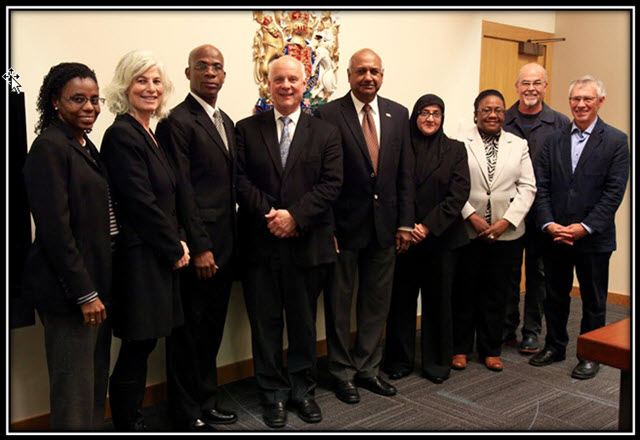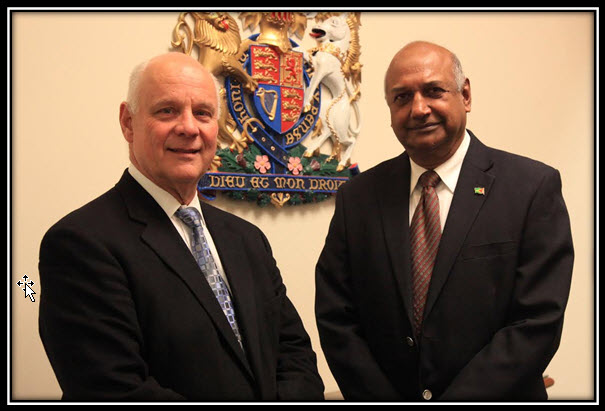A Commonwealth country on the north coast of South America with a population of about 800,000, Guyana has a Magistrates Court with criminal law responsibilities similar to those of our Provincial Court. Representatives of the Guyanese court system spent an intense week in Vancouver this month studying the BC Provincial Court’s problem-solving courts, use of technology, and system performance measures, as well as trial scheduling, early resolution, and case management strategies. This study program was part of a Justice Education Society of BC (JES) project funded by the Canadian government to help Guyana strengthen its criminal justice system.
The JES has extensive experience in projects to strengthen justice systems in countries facing steep challenges. The early stages of their work in Guyana, supporting justice system stakeholders as they identified priority issues and agreed on an approach to address them, are described in eNews 27-10-2015.
This two-year project aims to strengthen the confidence of the Guyanese people in their justice system by developing the technical capacity of the police, prosecutors and magistrates to work with criminal evidence. The project includes training in criminal investigations, case preparation, evidence handling, and trial advocacy. But the recent study tour in Vancouver focused on court administration concepts and design, highlighting the initiatives the BC Provincial Court has undertaken to maximize the effective, equitable and efficient use of its resources and minimize wait times for trials.

Guyanese Judicial Study Tour Delegation and hosts*
Headed by Guyana’s Chancellor of the Judiciary, the Honourable Carl Singh, O.R. C.C., the delegation included a High Court judge, the country’s Chief Magistrate, and its Director of Public Prosecution. Their week was packed with presentations, courtroom visits, and opportunities for discussion with those involved in the BC initiatives they were studying. Daily debriefing sessions allowed the delegates to discuss possible applications of what they had learned that day to their own system and to identify related issues.
Chancellor Singh, President of Guyana’s Court of Appeal, expressed particular interest in our community and drug treatment courts, and in the Digital Audio Recording System (DARS) used by BC’s Court Services branch to record court proceedings. He explained that Chief Judge Crabtree had prepared “an extremely valuable report” with suggestions for the Guyanese to consider, and actually seeing the measures he suggested in action would help to move things forward. The Chancellor added that he is determined the study tour will yield results, and hopes to implement some measures that won’t strain their courts’ limited resources without delay.

Chief Judge Crabtree and Chancellor Singh at the Office of the Chief Judge
Chancellor Singh also stressed his appreciation for the welcome the delegation received, saying “All the judges and others we spoke to were very accommodating, warm, and helpful”. Provincial Court Chief Judge Crabtree replied, “It was a pleasure and a privilege to host judicial colleagues from Guyana and share with them the initiatives we have studied, developed and implemented in recent years. With the help of Project Manager Evelyn Neaman, Country Representative Rolinda Kirton, and retired judge Michael Hicks, the Court presented an intensive program to acquaint our guests with a number of our administrative initiatives in the criminal justice field that might be adapted for use in Guyana. We are looking forward to future collaboration with our Guyanese colleagues.”
* photo left to right: JES Guyana Country Representative Rolinda Kirton, JES Guyana Project Manager Evelyn Neaman, Guyana High Court Justice Reynolds, Chief Judge Crabtree, Chancellor Singh, Chief Magistrate McLennan, Director of Public Prosecution Ali-Hack, Vancouver lawyer Chris Johnson, and Judge Michael Hicks (retired)

